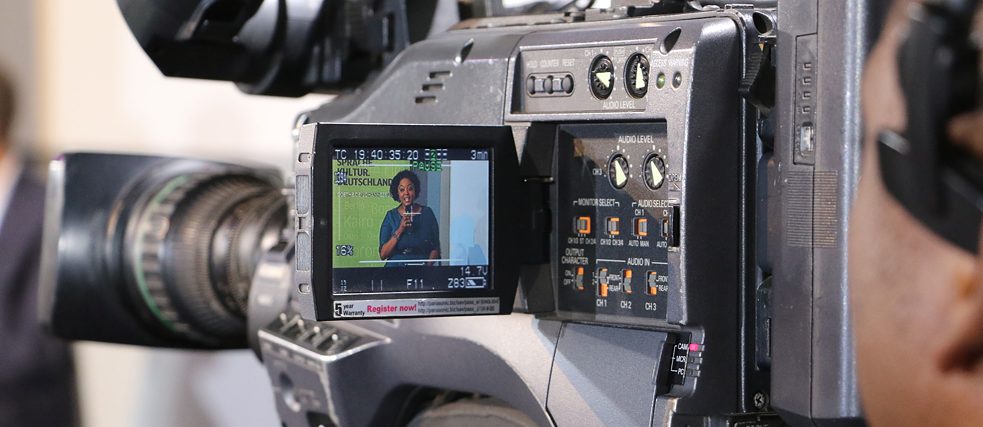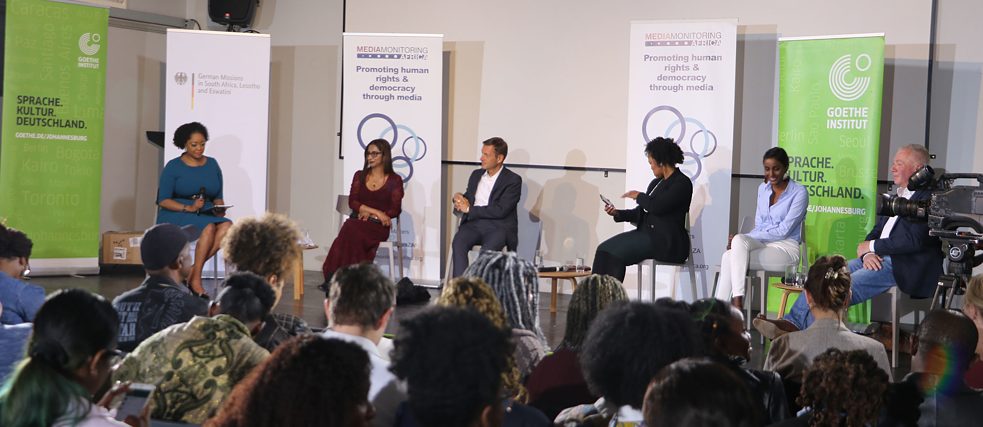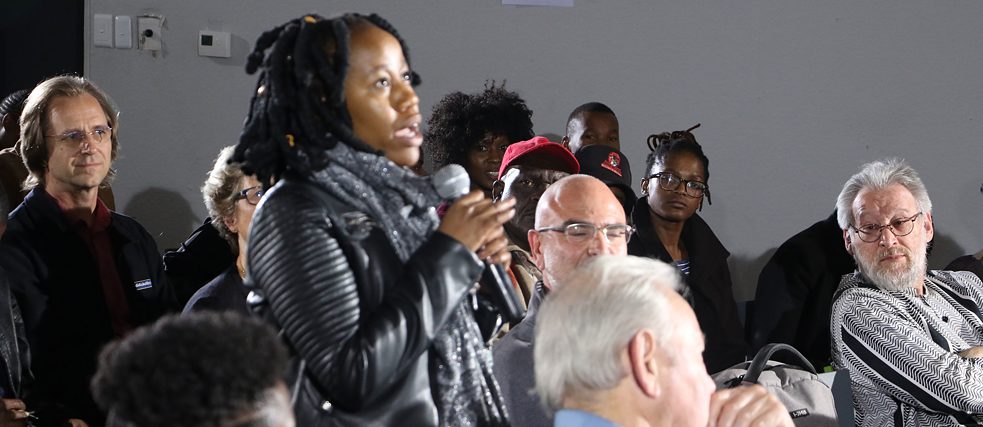A series by the Goethe-Institut South Africa
#FutureOfJournalism

The discussion was broadcast live on SABC News
|
Photo: Jonas Radunz
What challenges do South African and German journalism both face? And what do digital and global developments mean for the future of journalism? The Future of Journalism, a series by the Goethe-Institut South Africa, wants to discuss and find out exactly that.
By Jonas Radunz and Judit Hoffkamp
The fourth estate
The role of journalism is to take the powerful to account, said Holger Stark of DIE ZEIT at the beginning of the discussion with experts on The Future of Journalism. Media credibility in the age of fake news was the topic of the first of three events in the series. The participants in the debate agreed that journalism can be regarded as the quasi-fourth pillar of the separation of powers, which strengthens democracy and therefore has great relevance. They also agreed that journalism is in the midst of a credibility crisis not only in South Africa or Germany, but globally. The experts Tsepiso Makwetla (SABC), Holger Stark and Dr Glenda Daniels (WITS Media Studies) held a discussion during the live broadcast by South Africa’s SABC News.Digitisation offers a variety of opportunities for participation and access to the media, but it blurs the meaning of the word journalist and related journalistic content. What sources can and cannot be trusted? What is considered journalism and what is not?
 Panel at "Future of Journalism" (from left to right):Tsepiso Makwetla (SABC), Dr. Glenda Daniels (WITS Media Studies), Holger Stark (DIE ZEIT), Nikiwe Bikitsha (Broadcaster & Journalist), Verashni Pillay (Power FM) and Chris Vick (Spin doctor and Media strategist)
| Photo: Jonas Radunz
Panel at "Future of Journalism" (from left to right):Tsepiso Makwetla (SABC), Dr. Glenda Daniels (WITS Media Studies), Holger Stark (DIE ZEIT), Nikiwe Bikitsha (Broadcaster & Journalist), Verashni Pillay (Power FM) and Chris Vick (Spin doctor and Media strategist)
| Photo: Jonas Radunz
Fake news: A global problem
Nikiwe Bikitsha (broadcaster and journalist) mentioned a study by Reuters according to which 49 percent of South Africans have confidence in journalism. But 79 percent couldn’t tell the difference between fake news and quality journalism. In this context, Holger Stark also cited Russia’s influence over the elections in the US and Germany, pointing out that disinformation is by no means just a South African problem, but that societies worldwide are affected by it.A credibility crisis
Chris Vick (spin-doctor and media strategist) proposed that fines be imposed for journalists’ ethically abusive behaviour as a possible solution to the credibility crisis. Stark intervened, as he sees a potential threat that such fines could be instrumentalised by the powerful who might use the self-defence payments to make journalists spend more time in court than writing. Discussion with the audience
| Photo: Jonas Radunz
The audience also offered insightful contributions. They criticised that certain stories and scandals are often not as prominently discussed in the media as others contributing to a further loss of confidence. And a young journalism student pointed out the disproportionately harsh criticism of female journalists, which often takes on sexist attributes. She particularly spoke of the moral decline in the social media.
Discussion with the audience
| Photo: Jonas Radunz
The audience also offered insightful contributions. They criticised that certain stories and scandals are often not as prominently discussed in the media as others contributing to a further loss of confidence. And a young journalism student pointed out the disproportionately harsh criticism of female journalists, which often takes on sexist attributes. She particularly spoke of the moral decline in the social media.Glenda Daniels concluded by referring to the “beginning of the end of journalism.” She thinks it began with the media’s funding crisis and the resulting pressure on journalists to always keep sales in mind. Under these circumstances, how independent and critical can journalism be?